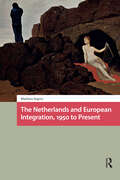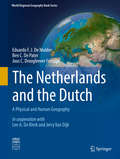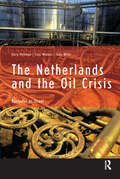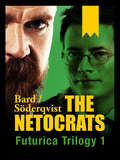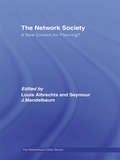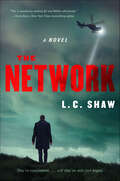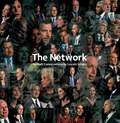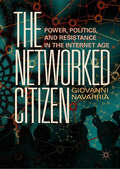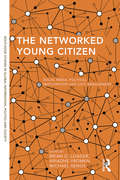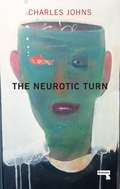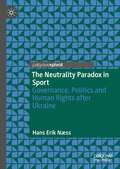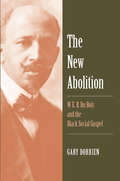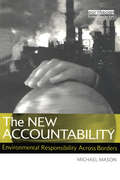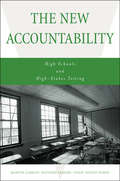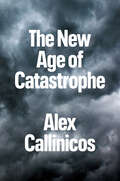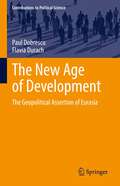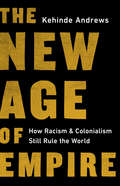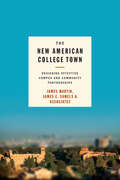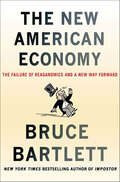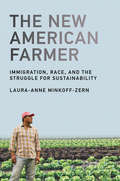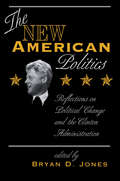- Table View
- List View
The Netherlands and European Integration, 1950 to Present
by Mathieu SegersOn 9 May 1950, France launched a revolutionary plan for supranational cooperation in Western Europe. The Netherlands was taken completely by surprise. In the decades that followed, European integration moved forward at an unprecedented pace, taking the Netherlands with it. Geography and the post-war world seemed to leave the country no other choice. European integration forced — and is still forcing — the Netherlands on a far-reaching ‘journey to the continent’. For the Netherlands, European integration represents a difficult journey to a new old world that often seems far off. How has that journey progressed so far? Why did the Netherlands join the common European market and currency from the very beginning? Was this course inevitable? And where has it brought the country? Using new, international source material, The Netherlands and European Integration, 1950 to Present digs deeply into the history of the Netherlands in Europe — a subject that is today more topical than ever.
The Netherlands and the Dutch: A Physical and Human Geography (World Regional Geography Book Series)
by Eduardo F. De Mulder Ben C. De Pater Joos C. Droogleever Fortuijn Len A. De Klerk Jerry Van DijkThis book presents a geographical survey of the Netherlands, reviewing recent and historic developments that made the nation. It is a relatively wealthy country and the Dutch belong to the happiest and healthiest on earth. But these qualities are not evenly spread over the country. The urban agglomeration of Randstad Holland in the west hosts most of the nation’s capital and young, well-educated people whereas older and less-educated people are concentrated in the peripheral areas in the north, east and south. Interactions between physical and human geographical aspects of the Netherlands are described quite extensively. Its position on one of Europe’s most prominent deltas, its abundance of energy resources and the course of history have all contributed to its present national position and international networks. But early and recent Dutch have also shaped this country. They reclaimed lakes and shallow seas, protected the lowlands against floods, re-allotted land parcels and designed and developed urban areas. Besides its focus on water-related topics, the book also covers social and cultural aspects. The book also discusses future challenges and offers scenarios for solutions. This is a book for those interested in a wide variety of recent aspects of the geography of the Netherlands described in a historical context. It appeals to students and researchers of many disciplines in geography, urban and landscape planning, water management, history and cultural studies.
The Netherlands and the Oil Crisis: Business as Usual
by Duco HellemaThe Netherlands played a remarkable role during the October War and the oil crisis of 1973. In secret, the Dutch government sent a substantial amount of ammunition and spare parts to Israel. The Dutch supported Israel also politically. Within the EC they vetoed a more pro-Arab policy.The Arab oil producing countries punished The Netherlands by imposing an oil embargo. The embargo against the Netherlands was intimidating. The Netherlands was dependent on Arab oil. The embargo seemed to threaten the Dutch position in the international oil sector. The government introduced several measures to reduce oil consumption. However, within two months it became clear that oil continued to arrive in Rotterdam. There was in fact no oil shortage in the Netherlands. The Netherlands even profited from the oil crisis. The energy situation in The Netherlands was much better than in other West European countries. The Dutch, therefore, rejected French plans for a more interventionist energy policy. Atlanticism and liberalism were the key words of the Dutch policy during the oil crisis.This book is the result of intensive research in all relevant Dutch archives. The authors had free access to all the files they wanted to see. They also used resources from other countries involved. Many politicians were interviewed. The result is a surprising analysis of the oil crisis of 1973, and of the Dutch role in particular.
The Netocracts
by Alexander Bard Jan SöderqvistHistory is always written from the perspective of the ruling or rising elite at the time of writing. Concepts like The Stone Age, The Bronze Age, etc. were of course unknown during the stone age and the bronze age. They were invented in the 1800s to make sense of a development that seemed to reach its climax with industrialisation...
The Network Society: A New Context for Planning (Networked Cities Series)
by Seymour J. Mandelbaum Louis AlbrechtsIn a clear and rewarding style, Albrechts and Mandelbaum consider the challenges that the new paradigm of the Network Society creates for Urban and Regional Planning. Chapters grouped into five themes discuss theoretical and practical perspectives on the contemporary organization of social, economic, cultural, political and physical spaces. These sections are: models of the Network Society the impact of physical networks such as transport challenges for Planners raised by society’s increased reliance on new technology an examination of local networks including community networks and the possibilities of setting up local networks for disaster recovery a comparison of spatial and policy networks and an exploration of the institutions involved. This book is essential reading for graduate level courses in urban studies, city and regional planning, and urban design. With its clear structure – unitary sections but a diversity of perspectives – the book can be used easily in courses such as Planning Theory, Urban Infrastructure and Public Policy.
The Network: A Novel
by L. C. Shaw“A twisty, nonstop conspiracy thriller that only has one gear: high! The Network delivers.” —Andrew Gross, #1 New York Times Bestselling Author “This is mandatory reading for any thriller aficionado.” —Steve Berry, New York Times Bestselling AuthorA pulse-pounding, page-turning thriller involving corruption, secrets, and lies at the very deepest levels of government and media.A shadowy group is manipulating society—and they’ve only just begun.Late one night, investigative journalist Jack Logan receives a surprise visit from U.S. Senator Malcolm Phillips at his New York apartment. Disheveled and in a panic, the senator swears that he’s about to be murdered and pleads with Jack to protect his wife Taylor, who happens to be the only woman Jack has ever truly loved.Days later, Phillips is found dead in a hotel room in Micronesia, the apparent victim of an allergy attack. While the nation mourns, Jack and Taylor race to find the one man who knows the truth. As they’re pursued by unknown assailants, their desperate hunt leads them to the Institute, an immense facility shrouded in mystery that has indoctrinated a generation of America’s political and media power players. Led by the enigmatic Damon Crosse, the Institute has its tentacles everywhere—but Taylor unknowingly holds the secret to the one thing that Crosse needs to carry out his plan. Taking readers on a thrill ride from the back halls of Congress to the high-rise offices of Madison Avenue and a remote Greek island, The Network is a provocative, pulse-pounding novel that dares to ask the question: who’s really in charge?
The Network: Portrait Conversations
by Lincoln SchatzAs the nation grapples with some of the greatest developments and challenges to date, The Network presents a dynamic portrait of the people who help shape America's current technology, policy, and education. Drawing inspiration from Richard Avedon's 1976 photographic portfolio, The Family, The Network consists of generative video portraits of 100 entrepreneurs, industrialists, politicians, scientists, scholars, inventors, and other influential figures, some of whom may be household names and others who operate behind the scenes, who play pivotal roles shaping the history and daily workings of America. The project builds on aspects of portraitist Lincoln Schatz's earlier project, Esquire's Portrait of the 21st Century (National Portrait Gallery, Smithsonian Institution), taking a closer look at how the touchstones of America are created and preserved.
The Networked Citizen: Power, Politics, and Resistance in the Internet Age
by Giovanni NavarriaThis book investigates the changing meanings of power and politics in the Internet age and questions whether the political category of the citizen still has a meaningful role to play in the highly-mediated dynamics of an increasingly networked world. To answer such questions, the book analyses and compares the impact of the Internet on the relationship between state, citizens, and politics in three countries: the USA, Italy, and China. The book’s journey starts in the mid-90s and ends in 2016. It pays particular attention to Obama 2008 and Trump 2016 presidential campaigns, the ascendance to power in Italy of the anti-establishment Five Star Movement, and to the enduring Chinese government’s struggle to control the Internet public opinion. The book challenges the traditional understanding of power through which the strong typically prevails over the weak. This leads to a clearer understanding of the wider role citizens can play (and must play) in a networked political sphere, while it also warns the reader on the many risks citizens face in a post-truth world.The book challenges the traditional understanding of power through which the strong typically prevails over the weak. This leads to a clearer understanding of the wider role citizens can play (and must play) in a networked political sphere.
The Networked Young Citizen: Social Media, Political Participation and Civic Engagement (Routledge Studies in Global Information, Politics and Society)
by Ariadne Vromen Brian D. Loader Michael A. XenosThe future engagement of young citizens from a wide range of socio-economic, ethnic and cultural backgrounds in democratic politics remains a crucial concern for academics, policy-makers, civics teachers and youth workers around the world. At a time when the negative relationship between socio-economic inequality and levels of political participation is compounded by high youth unemployment or precarious employment in many countries, it is not surprising that new social media communications may be seen as a means to re-engage young citizens. This edited collection explores the influence of social media, such as YouTube, Facebook, and Twitter, upon the participatory culture of young citizens. This collection, comprising contributions from a number of leading international scholars in this field, examines such themes as the possible effects of social media use upon patterns of political socialization; the potential of social media to ameliorate young people’s political inequality; the role of social media communications for enhancing the civic education curriculum; and evidence for social media manifesting new forms of political engagement and participation by young citizens. These issues are considered from a number of theoretical and methodological approaches but all attempt to move beyond simplistic notions of young people as an undifferentiated category of ‘the internet generation’.
The Neurotic Turn
by Charles JohnsTaking their cue from the work of Charles Johns, who has argued that, far from being an ailment, neurosis is in fact the dominant condition of our society today, an array of thinkers have gathered in The Neurotic Turn to address the question: what can ‘neurosis’ tell us about our current social impasse?What emerges in The Neurotic Turn is the awareness that the medicalization of neurosis was merely provisional. Today, to understand our increasingly synthetic, digitized world, we cannot retreat from neurosis, or pretend to offer its cure. Instead, we must confront it — dispensing with the conventional idea of ‘reality’ in order to redefine it.
The Neutrality Paradox in Sport: Governance, Politics and Human Rights after Ukraine
by Hans Erik NæssFollowing Russia’s invasion of Ukraine in early 2022, sanctions were implemented that banned Russia from most international sports. As a result, sport governing bodies (SGBs) have made a marked shift in their tradition of neutrality, to a point of no return. In light of this, this book asks what is next for SGBs. It provides an analysis of the root problem that sport governing bodies have had with politics since their inception: a paradoxical treatment of neutrality. This can be evidenced by their awarding of Mega-Sport Events to authoritarian states and also through the SGBs’ own desire to make a difference by promoting human rights and sustainable development. Good or bad, the author argues that their neutrality principles are invalidated by their actions. Offering interdisciplinary research with empirical examples, this issue is explored in an engaging, yet analytical way, making it valuable reading for researchers and students interested in sport management, for organisations and also policy makers. This book presents a pioneering study of neutrality and autonomy in sport in light of the Ukraine crisis, and addresses a growing appetite in academia on how sport governing bodies will reconcile their commitments to societal progress, whilst maintaining neutrality.
The Never End: The Other Orwell, the Cold War, the CIA, MI6, and the Origin of Animal Farm
by John ReedThis book presents full history of the origin of Orwell’s Animal Farm, as well as a translation of the Russuian/Ukranian source work. Has George Orwell lost his saintly luster? In The Never End, rabble-rouser, dogged investigator, and consummate literary stylist John Reed collects two decades of subject-Orwell findings previously published in Pank, Guernica, Literary Hub, The Brooklyn Rail, The Rumpus, The New York Press, The Believer, Harper’s Magazine and The Paris Review. Reed’s treatment of Orwell is corrective and peerlessly contemporary; he views Orwell in a twenty-first century global context, considering Orwell’s collaboration with Cold War intelligence operations—US and UK—with unfaltering objectivity. It’s hard to imagine that Orwell—in our own moment of global doublethink—wouldn’t have wanted his devotion to contrariety applied to the literary legacy he left behind. The Never End is at once a hatchet job and a celebration. Animal Farm, based on a previously unknown Russian short story? Animal Farm, deployed by the CIA, MI6 and the Congress for Cultural Freedom? Orwell, turning over blacklists in a McCarthy-esque act of betrayal? The Cold War? Does it last forever? Russia, the “Axis of Evil,” and now China? But. Orwell. Course syllabi. Literary laurels. Snitch. Why do we keep coming back? For the wrong reasons? Or because we know Old Benjamin would want us to know the truth?
The New Abnormal: The Rise of the Biomedical Security State
by Aaron KheriatyThe coronavirus pandemic conferred enormous power on certain government officials. They have no intention of giving it up.In the space of a few weeks in early 2020, Americans witnessed the imposition of previously unimagined social controls by the biomedical security state—the unelected technocrats who suddenly enjoyed nearly absolute power to incarcerate, isolate, and medicate the entire population. In this chilling new book, a dissident scientist reveals the people and organizations that form the biomedical security state its role in the origin of the pandemic and shaping the government response why it is a threat to science, public health, and individual freedom what can be done to confront and defeat this new Leviathan When covid-19 broke out, Dr. Aaron Kheriaty&’s work put him on the front lines. Realizing that the mental, physical, and economic toll of lockdowns was catastrophic, he began to protest that the cure was worse than the disease—an intolerable heresy. When he refused vaccination because he had natural immunity from a previous infection, the University of California, Irvine, medical school fired him. He fought back, in the courts and in the media, and has become a reliable source of truth amid official obfuscation and censorship. Now it&’s time for all of us to fight back. The deadly and arrogant misrule of the biomedical security state must not become the "new normal."
The New Abolition
by Gary DorrienThe black social gospel emerged from the trauma of Reconstruction to ask what a "new abolition" would require in American society. It became an important tradition of religious thought and resistance, helping to create an alternative public sphere of excluded voices and providing the intellectual underpinnings of the civil rights movement. This tradition has been seriously overlooked, despite its immense legacy. In this groundbreaking work, Gary Dorrien describes the early history of the black social gospel from its nineteenth-century founding to its close association in the twentieth century with W. E. B. Du Bois. He offers a new perspective on modern Christianity and the civil rights era by delineating the tradition of social justice theology and activism that led to Martin Luther King Jr. "
The New Accountability: Environmental Responsibility Across Borders
by Michael MasonThe growth of pollution that crosses national borders represents a significant threat to human health and ecological sustainability. Various international agreements exist between countries to reduce risks to their populations, however there is often a mismatch between national territories of state responsibility and transboundary hazards. All too often, state priorities do not correspond to the priorities of the people affected by pollution, who often have little recourse against major polluters, particularly transnational corporations operating across national boundaries. Drawing on case studies, The New Accountability provides a fresh understanding of democratic accountability for transboundary and global harm and argues that environmental responsibility should be established in open public discussions about harm and risk. Most critically it makes the case that, regardless of nationality, affected parties should be able to demand that polluters and harm producers be held accountable for their actions and if necessary provide reparations.
The New Accountability: High Schools and High-Stakes Testing
by Martin Carnoy Richard Elmore Leslie Santee Siskin"Standard-based accountability" has become a consistent buzzword emanating from the mouths of hopeful politicians-liberal and conservative-for almost twenty years. But does accountability work? The New Accountability explores the current wave of assessment-based school accountability reforms, which combine two traditions in American education-public accountability and student testing.
The New Adventures of Sinbad the Sailor
by Salim Bachi Sue RoseSinbad the Sailor is reborn as a young, adventurous man in modern day Algeria, who has joined the waves of North African immigration into Europe. Accompanied by a mysterious mongrel and his Senegalese friend Robinson, this lover of women and beauty embarks on a journey around the Mediterranean--from Algiers to Damascus, passing through Rome, Paris, Baghdad, through the refugee camps and the deceitful glimmer of the Western world--that takes him on a headlong pursuit of happiness and love.A tale of our times--sometimes cruel, often funny and always fascinating--this novel tells the story of a man coming to grips with the stark realities of war within the framework of legend. It is at once a reconciliation of East and West and a resounding judgement on the state of the modern world.
The New Age of Catastrophe
by Alex CallinicosThe world is entering a new age of catastrophe. The exceptional is becoming normal. The last such crisis, between 1914 and 1945, witnessed two world wars, the Great Depression, and the Holocaust. Now humankind faces fresh existential threats – the COVID-19 pandemic, wildfires, floods and other extreme weather events caused by accelerating climate change, and the danger of nuclear war in the wake of Russia's invasion of Ukraine. These threats, argues Alex Callinicos, have their common source in a multidimensional crisis of the capitalist system, which is hitting the buffers, hurling us towards societal collapse. It embraces the increasing destruction of nature and the degradation of labour, a world economy stagnant since the global financial crisis, and escalating inter-imperialist conflicts between the United States, China, and Russia. So far, the main political beneficiary has been the far right, which may capture the White House again. But the new age of catastrophe is also an age of revolt. Following on from Black Lives Matter, the #MeToo protests, and the revolts in Sudan, Sri Lanka, and Iran, multiple faultlines in the system will provoke still more mass movements that can challenge myriad forms of oppression and open the way to a just and sustainable world.
The New Age of Development: The Geopolitical Assertion of Eurasia (Contributions to Political Science)
by Paul Dobrescu Flavia DurachThis book focuses on current trends in development, arguing that the digital revolution will shape today’s race for global supremacy. The volume explores how the technological race, driven by AI advances, will decisively contribute to shaping a new world order. Every leap in technological advancement changes the rules of the game and initiate new cycles of economic growth. The main argument of the authors is that these changes are particularly intense in Eurasia, the main geopolitical hotspot at the moment. Starting from recent statistical data, the authors underline this new ascent of the Asian continent - a shift that can be best described as a historical change of relay not between two countries, but between two continents. Lastly, the volume discusses the consequences of these shifts in power and influence, by reflecting on the possible new world order to follow. Effectively providing an overview of the challenges that will decisively shape future geopolitical relations, this volume will be of use to researchers and students interested in globalization studies, international relations, geopolitics, and development.
The New Age of Empire: How Racism and Colonialism Still Rule the World
by Kehinde AndrewsA damning exploration of the many ways in which the effects and logic of anti-black colonialism continue to inform our modern world. Colonialism and imperialism are often thought to be distant memories, whether they're glorified in Britain's collective nostalgia or taught as a sin of the past in history classes. This idea is bolstered by the emergence of India, China, Argentina and other non-western nations as leading world powers. Multiculturalism, immigration and globalization have led traditionalists to fear that the west is in decline and that white people are rapidly being left behind; progressives and reactionaries alike espouse the belief that we live in a post-racial society. But imperialism, as Kehinde Andrews argues, is alive and well. It's just taken a new form: one in which the U.S. and not Europe is at the center of Western dominion, and imperial power looks more like racial capitalism than the expansion of colonial holdings. The International Monetary Fund, World Bank, World Trade Organization and even the United Nations are only some of these modern mechanisms of Western imperialism. Yet these imperialist logics and tactics are not limited to just the west or to white people, as in the neocolonial relationship between China and Africa. Diving deep into the concepts of racial capitalism and racial patriarchy, Andrews adds nuance and context to these often over-simplified narratives, challenging the right and the left in equal measure. Andrews takes the reader from genocide to slavery to colonialism, deftly explaining the histories of these phenomena, how their justifications are linked, and how they continue to shape our world to this day. The New Age of Empire is a damning indictment of white-centered ideologies from Marxism to neoliberalism, and a reminder that our histories are never really over.
The New American College Town: Designing Effective Campus and Community Partnerships
by James Martin; James E. SamelsA new perspective on the relationships among colleges, universities, and the communities with which they are now partnering.Colleges and universities have always had interesting relationships with their external communities, whether they are cities, towns, or something in between. In many cases, they are the main economic driver for their regions—State College, Pennsylvania, or Raleigh, North Carolina, for example—and in others, they exist side by side with thriving industries. In The New American College Town, James Martin, James E. Samels & Associates provide a practical guide for planning a new kind of American college town—one that moves beyond the nostalgia-tinged stereotype to achieve collaborative objectives.What exactly is a college town in America today? Examining the broad range of partnerships transforming campuses and the communities around them, the book opens by detailing twenty characteristics of new American college towns. Subsequent chapters invite presidents, provosts, planners, mayors, architects, and association directors to share their views on how college town relationships are shaping new generations of students and citizens. The book tackles urban and rural institutions, as well as community colleges, and closes with predictions about what college towns will look like in twenty-five years. Contributors include presidents from Lehigh, Portland State, New Jersey City, and Connecticut College, along with five college town mayors and the current or former executive directors from the International Town-Gown Association, the Association for the Study of Higher Education, and others.The book also traces how town-gown relations are expanding into innovative areas nationally and internationally, moving beyond familiar student life programs and services to hundred-million-dollar downtown developments. The first comprehensive, single-volume resource designed for leaders on both sides of these conversations, The New American College Town includes action plans, lessons learned, and pitfalls to avoid in developing transformative relationships between colleges and their extended communities.Contributors: Robert C. Andringa, Aaron Aska, Beth Bagwell, Katherine Bergeron, Kelly A. Cherwin, Phillip DiChiara, Lorin Ditzler, Mauri A. Ditzler, Kevin E. Drumm, Erin Flynn, Michael Fox, Joel Garreau, Susan Henderson, Andrew W. Hibel, Patrick Hyland, Jr., Jay Kahn, James Martin, Miguel Martinez-Saenz, Fred McGrail, Kim Nehls, Krisan Osterby, Tracee Reiser, Stuart Rothenberger, Kate Rousmaniere, James E. Samels, Rick Seltzer, John D. Simon, Jefferson A. Singer, Allison Starer, Wim Wiewel, Eugene L. Zdziarski II
The New American Economy: The Failure of Reaganomics and a New Way Forward
by Bruce BartlettAs a domestic policy advisor to Ronald Reagan, Bruce Bartlett was one of the originators of Reaganomics, the supply-side economic theory that conservatives have clung to for decades. In The New American Economy, Bartlett goes back to the economic roots that made Impostor a bestseller and abandons the conservative dogma in favor of a policy strongly based on what's worked in the past. Marshalling compelling history and economics, he explains how economic theories that may be perfectly valid at one moment in time under one set of circumstances tend to lose validity over time because they are misapplied under different circumstances. Bartlett makes a compelling, historically-based case for large tax increases, once anathema to him and his economic allies. In The New American Economy, Bartlett seeks to clarify a compelling and way forward for the American economy.
The New American Farmer: Immigration, Race, and the Struggle for Sustainability (Food, Health, and the Environment)
by Laura-Anne Minkoff-ZernAn examination of Latino/a immigrant farmers as they transition from farmworkers to farm owners that offers a new perspective on racial inequity and sustainable farming.Although the majority of farms in the United States have US-born owners who identify as white, a growing number of new farmers are immigrants, many of them from Mexico, who originally came to the United States looking for work in agriculture. In The New American Farmer, Laura-Anne Minkoff-Zern explores the experiences of Latino/a immigrant farmers as they transition from farmworkers to farm owners, offering a new perspective on racial inequity and sustainable farming. She finds that many of these new farmers rely on farming practices from their home countries—including growing multiple crops simultaneously, using integrated pest management, maintaining small-scale production, and employing family labor—most of which are considered alternative farming techniques in the United States.Drawing on extensive interviews with farmers and organizers, Minkoff-Zern describes the social, economic, and political barriers immigrant farmers must overcome, from navigating USDA bureaucracy to racialized exclusion from opportunities. She discusses, among other topics, the history of discrimination against farm laborers in the United States; the invisibility of Latino/a farmers to government and universities; new farmers' sense of agrarian and racial identity; and the future of the agrarian class system.Minkoff-Zern argues that immigrant farmers, with their knowledge and experience of alternative farming practices, are—despite a range of challenges—actively and substantially contributing to the movement for an ecological and sustainable food system. Scholars and food activists should take notice.
The New American Militarism: How Americans Are Seduced by War
by Andrew J. BacevichHow our rationale for battle have been manipulated.
The New American Politics: Reflections On Political Change And The Clinton Administration (Transforming American Politics Ser.)
by Bryan D JonesWas 1992 a realigning election? Did the midterm elections of 1994 realign the realignment? Will 1996 carry the United States forward on yet another changed trajectory? In this volume of original essays, leading political scientists examine key components of the American agenda and assess the current administration's position in light of historical precedents and future trends. Each conclusion is unique, born of a combination of the empirical record and its interpretation, but essays by Bryan Jones and Larry Dodd help to put the wide-ranging views represented here in long-term perspective.
